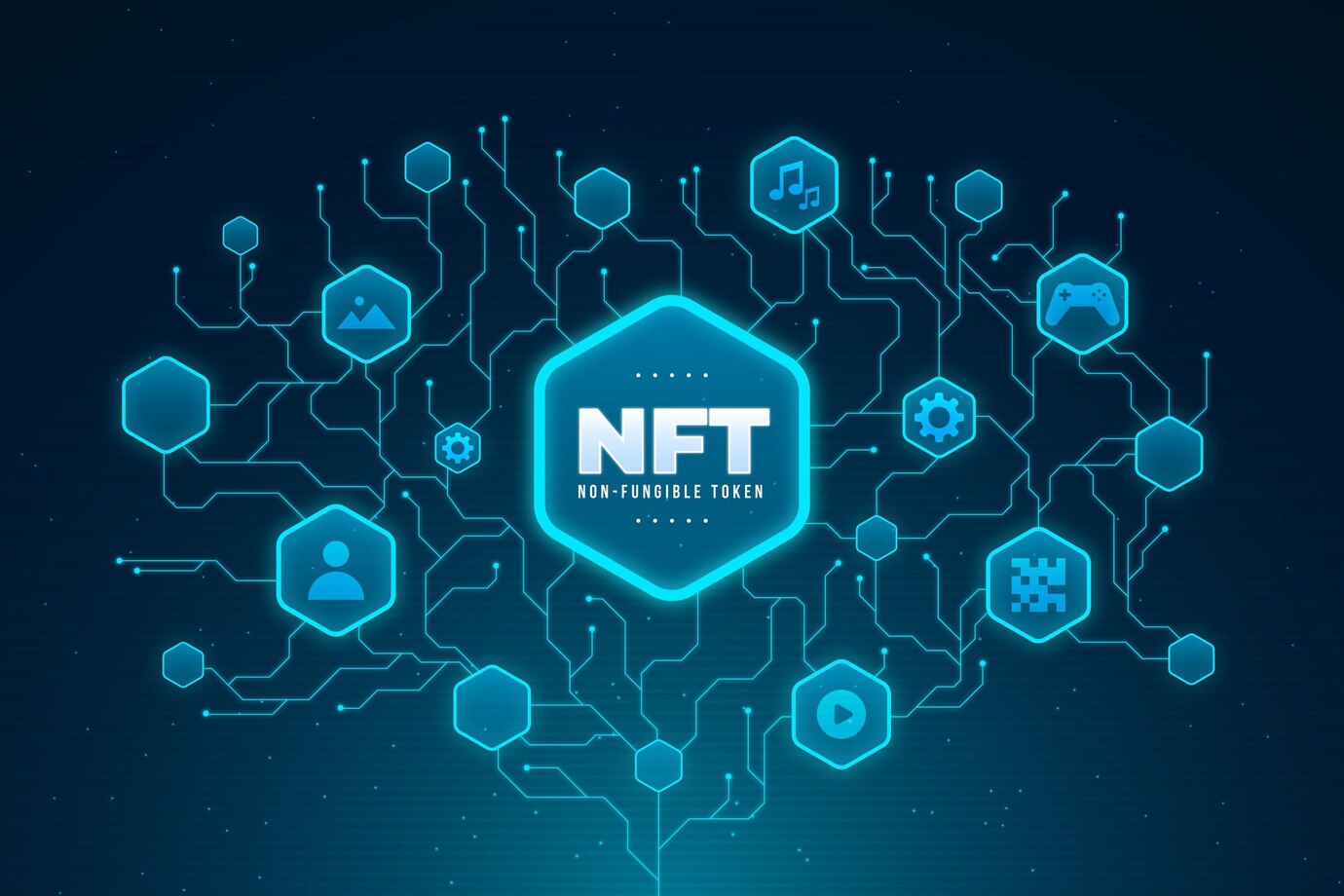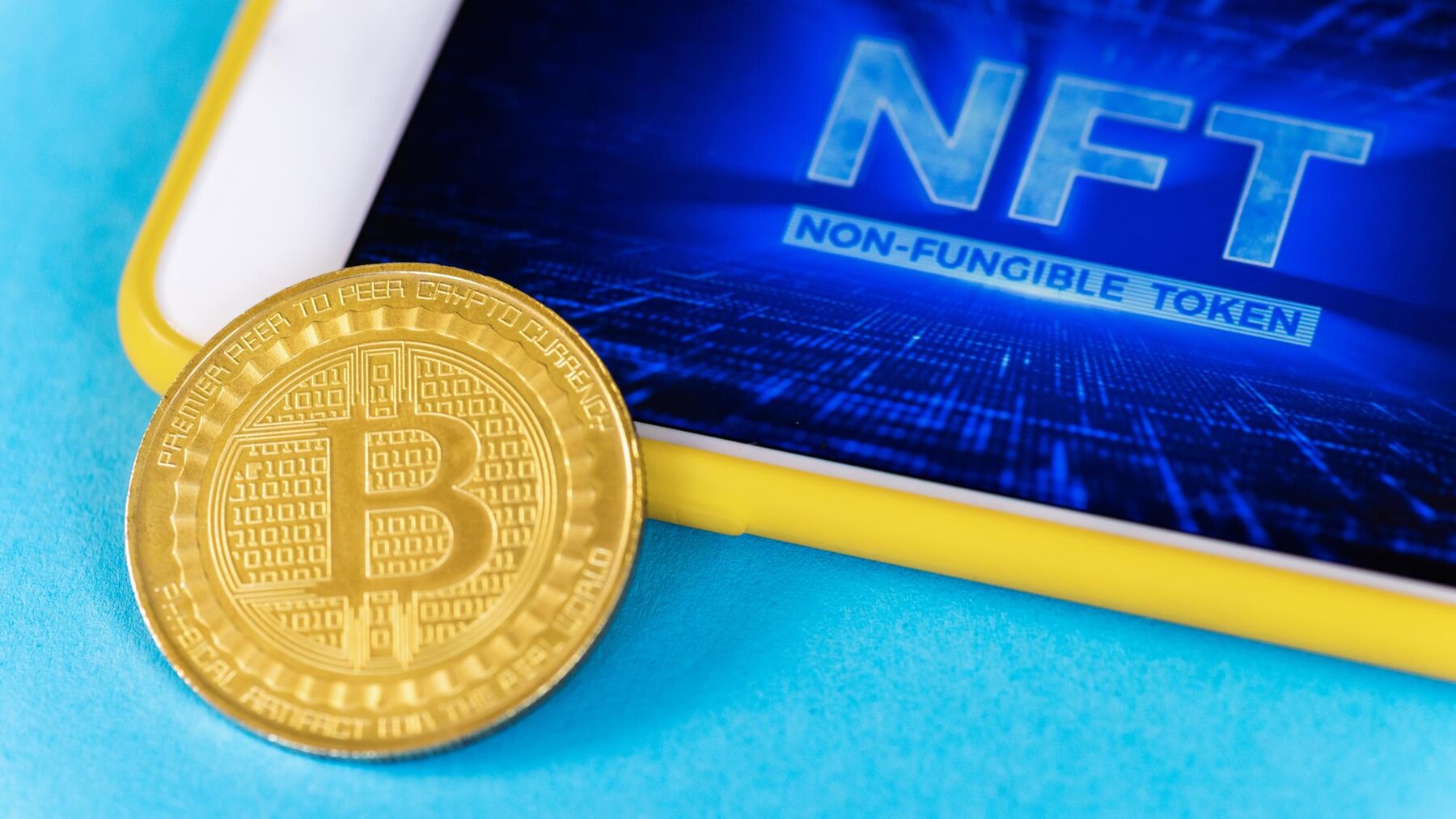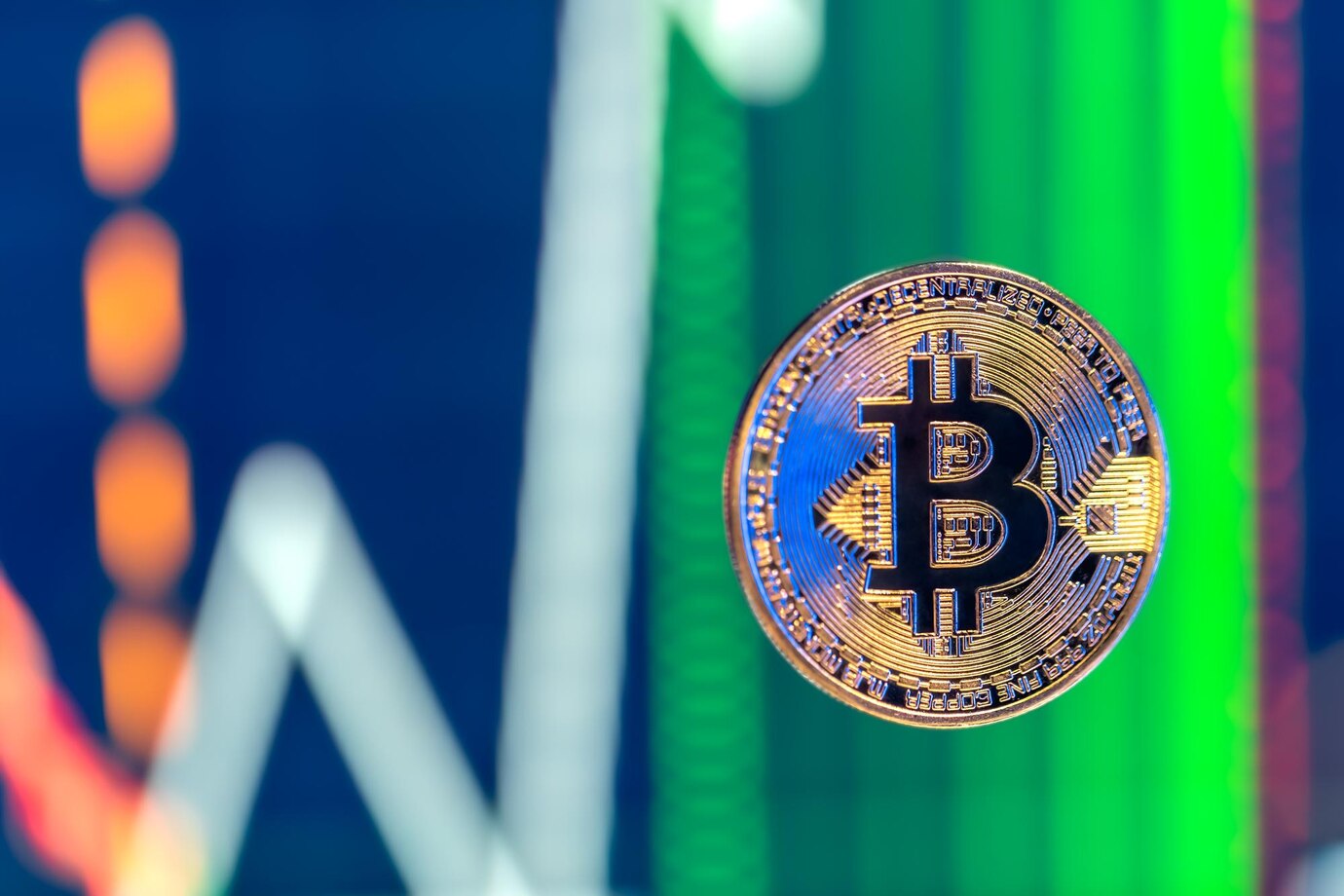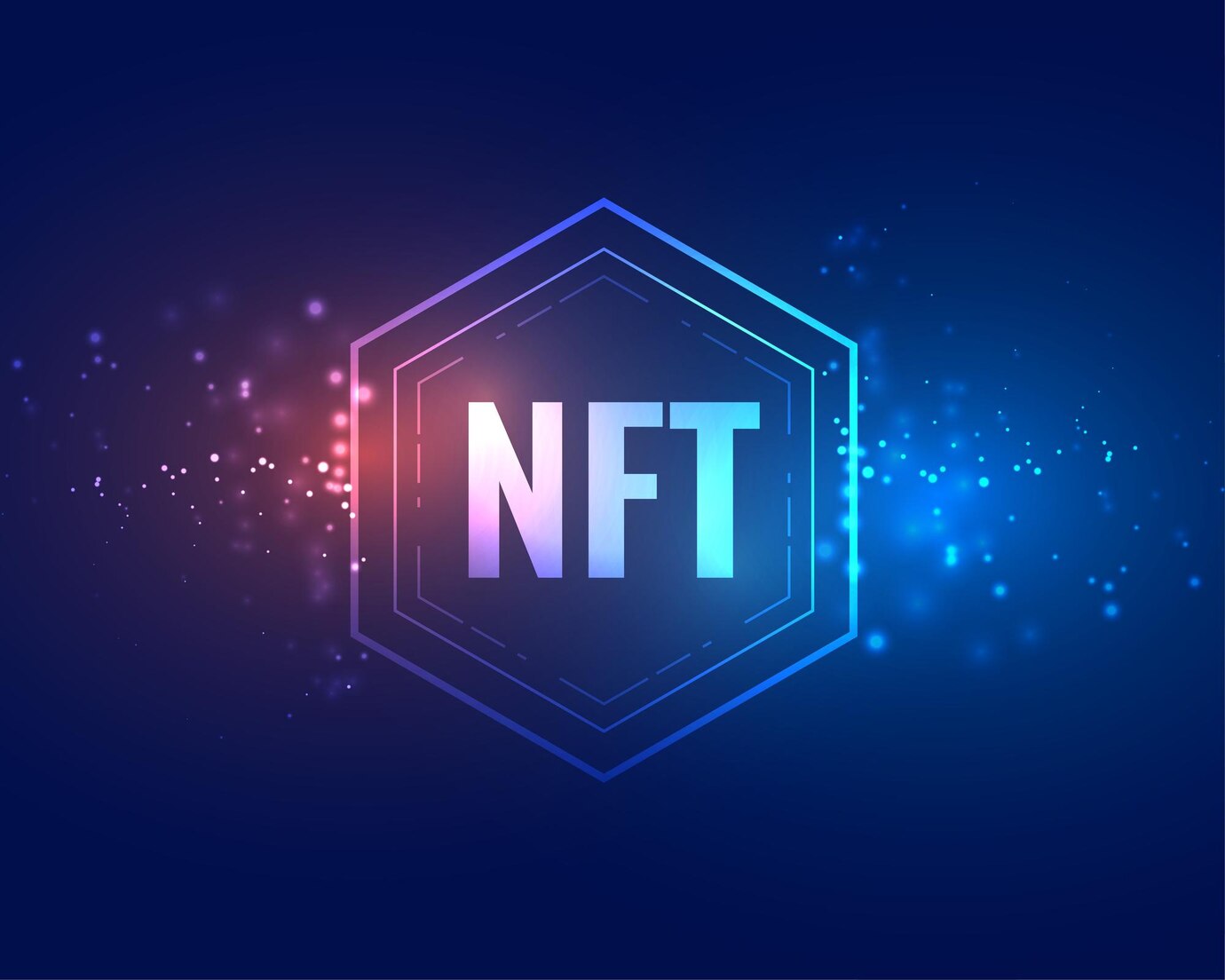NFTs and Their Role in the Digital Economy
The rise of blockchain technology has revolutionised the digital economy, and at the centre of this transformation are non-fungible tokens (NFTs). Unique digital assets are changing industries like art, music, gaming, and real estate. They offer new ways for creators and investors to make money and trade digital assets safely. In this article, we’ll explain

The rise of blockchain technology has revolutionised the digital economy, and at the centre of this transformation are non-fungible tokens (NFTs). Unique digital assets are changing industries like art, music, gaming, and real estate. They offer new ways for creators and investors to make money and trade digital assets safely.
In this article, we’ll explain NFTs in simple terms, explain how they shape the world of digital collectables, and discuss whether NFT investment is a wise choice in today’s economy.
NFTs Explained: What Are They?

NFTs (Non-Fungible Tokens) are unique digital assets stored on a blockchain. They represent ownership of items like art, music, and virtual fashion. Unlike cryptocurrencies, NFTs are one-of-a-kind and cannot be exchanged on a one-to-one basis, making them ideal for digital collectables and exclusive content.
Understanding Non-Fungible Tokens
NFTs are unique digital assets that exist on a blockchain, typically Ethereum. NFTs are different from cryptocurrencies like Bitcoin or Ethereum. While those are interchangeable (fungible), NFTs are unique. No two NFTs are alike. Each NFT has a unique identifier that proves its ownership and authenticity.
How NFTs Work
- Blockchain Technology – NFTs are maintained on trustless ledgers, which means they are visible and private.
- Smart Contracts – These self-executing contracts automatically manage ownership and royalties.
- Metadata and Provenance – An NFT carries metadata detailing its creator, ownership, and attributes.
NFTs can involve many digital and physical assets. They cover everything from art, music, videos, gaming items, virtual real estate, and IP rights.
Types of NFTs
NFTs are not limited to just digital art; they encompass a broad range of applications:
- Art NFTs – Digital artwork and illustrations.
- Music NFTs – Tokenised songs, albums, or concert tickets.
- Gaming NFTs – In-game assets, skins, weapons, or characters.
- Virtual Real Estate NFTs – Digital land or property in metaverse platforms.
- Domain Name NFTs – Blockchain-based domain names that offer decentralised website ownership.
The Rise of Digital Collectibles
Digital collectables have surged in popularity, driven by blockchain technology and the rise of NFTs. From virtual fashion to rare digital art, these assets offer exclusive ownership, scarcity, and new ways for creators and brands to engage with audiences.
NFTs in the Art and Music Industry
NFTs are now embraced by the art world. This allows artists to sell their digital work directly to buyers, bypassing middlemen. Platforms like OpenSea, Foundation and Rarible revolutionised how people purchase and sell digital art. They also generate new avenues of income for artists.
Musicians have started tokenising their music and albums. This allows fans to own unique rights and even profit shares. Kings of Leon, Grimes, and Snoop Dogg harness NFTs to engage with fans differently.
NFTs in Gaming and Virtual Worlds
The gaming industry has been one of the biggest adopters of digital collectables. Games such as Axie Infinity, Decentraland, and The Sandbox let players buy, sell, and trade in-game assets as NFTs. This gives these assets real-world value.
- Players own their digital assets, unlike traditional games where in-game purchases are locked to a single platform.
- NFTs enhance the play-to-earn model, allowing users to generate income through gaming.
- Virtual real estate in metaverse platforms has become a booming market, with users buying and selling virtual land as NFTs.
The Economics of NFT Investment
NFT investment operates on principles of scarcity, demand, and blockchain verification, making digital assets valuable and tradable. While some NFTs appreciate in value, market volatility, speculation, and evolving regulations make investing in them both high-risk and high-reward.
Why People Invest in NFTs
NFTs have become an alternative asset class, attracting collectors, traders, and investors. Here are some reasons why individuals invest in NFTs:
- Scarcity and Uniqueness – Rare NFTs can increase in value over time.
- Blockchain Security – Ownership is verifiable and cannot be altered or duplicated.
- Potential for High Returns – Some NFTs have sold for millions, such as Beeple’s artwork, which fetched $69 million at auction.
- Access to Exclusive Content – Many NFT projects offer perks like event tickets, merchandise, or access to private communities.
- Interoperability – NFTs can be used across multiple platforms and metaverses.
Risks and Challenges of NFT Investment
While the potential rewards are significant, NFT investment carries risks:
- Market Volatility – NFT prices can fluctuate wildly, leading to potential losses.
- Scams and Fraud – Fake projects and rug-pulls can result in investors losing their money.
- Environmental Concerns – Some blockchains require high energy consumption for transactions.
- Regulatory Uncertainty – Governments are still formulating laws around NFTs and digital assets.
- Liquidity Issues – Unlike stocks or crypto, NFTs may take longer to sell.
How NFTs Are Changing Business and Commerce

NFTs are transforming business and commerce by enabling digital ownership, creating new revenue streams, and fostering direct creator-to-consumer interactions. From virtual fashion to exclusive memberships, brands leverage NFTs to drive engagement, authenticity, and innovation in the digital economy.
NFTs in Brand Marketing
Big brands are using NFTs in their marketing. This helps them engage customers and build loyalty. Nike, Coca-Cola, and Adidas have all launched NFT collections. These offer limited-edition digital merchandise that boosts brand identity.
NFTs in Real Estate and Ownership Rights
NFTs are being explored for real-world applications beyond art and gaming. Some real estate firms are using blockchain to tokenise property ownership, allowing buyers to buy fractions of real estate.
- Fractional Ownership – Investors can buy shares in properties as NFTs.
- Smart Contracts for Transactions – Automates and simplifies the buying process.
- Reduced Need for Intermediaries – Cuts costs related to legal and brokerage fees.
NFTs in Supply Chain and Authentication
Luxury brands are using NFTs to prove that high-end goods are real. Brands like Louis Vuitton and Gucci are trying NFT-based authenticity certificates. This helps them fight counterfeiting.
The Future of NFTs in the Digital Economy
The future of NFTs in the digital economy lies in their expanding utility, from virtual goods and gaming to real-world asset tokenisation. As technology evolves, NFTs are set to revolutionise ownership, commerce, and digital interactions across various industries.
Mainstream Adoption and Innovation
The NFT scene is changing fast. More industries are using blockchain technology. This tech helps provide secure and clear ownership of digital assets. Innovations such as:
- AI-generated NFTs – Creating unique digital art through artificial intelligence.
- NFT Ticketing – Preventing fraud in event ticket sales by issuing tickets as NFTs.
- NFT-based Memberships – Offering exclusive perks and benefits to NFT holders.
- Decentralised Finance (DeFi) and NFTs – Using NFTs as collateral for loans.
Will NFTs Continue to Grow?
NFTs have faced criticism and market ups and downs. Still, their role in the digital economy will likely grow as new uses appear. As technology advances, NFTs will become easier to access. They will also be more sustainable and valuable in various industries.
The Future of NFTs in the Digital Landscape

The influence of NFTs in the digital economy is undeniable. From revolutionising digital collectables to introducing new NFT investment opportunities, these tokens have reshaped how we perceive and interact with digital assets.
This part sounds like an exciting prospect, but it also comes with risk. Investors need to consider these risks carefully. Whether you are an artist, a gamer, a collector, or an investor, being in the loop when it comes to NFTs is essential. This allows you to make informed decisions in a fast-changing market.
As blockchain technology continues to expand, NFTs will become increasingly significant in regard to ownership, commerce, and creativity in the Internet.